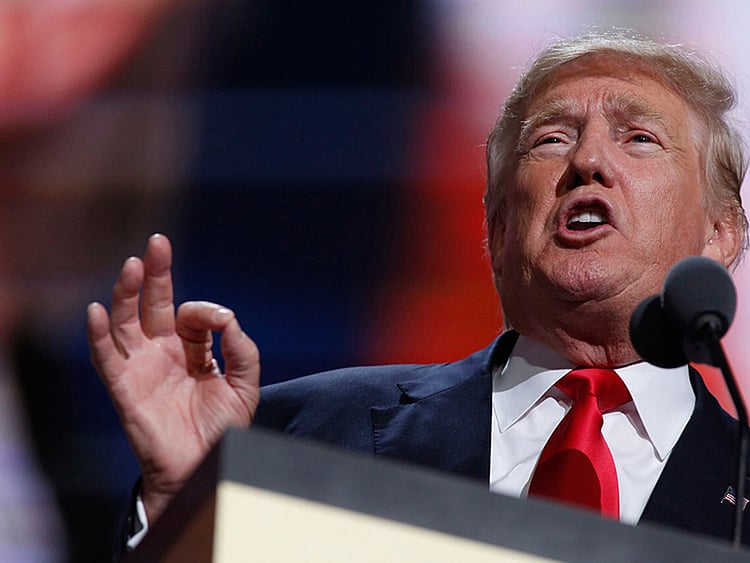One of the most common reasons you hear in favour of voting for the Republican candidate, Donald Trump, for the American presidential election this November is that he “tells it like it is”.
Unlike so many career politicians, the GOP candidate “speaks his mind” and is “unafraid to offend”. In addition to standing up to Mexican “rapists” and fundamentalists, his devoted fans say, the Republican nominee will wage a single-minded campaign against “political correctness”, the effects of which have deleteriously affected government policies on everything — from crime to terrorism.
I despise political correctness, whether it comes in the form of calling illegal immigrants “undocumented” (as if they merely forgot their papers at home) or Yale students shrieking about emails concerning Halloween costumes. Most Americans seem to agree: An October poll by Fairleigh Dickinson University found that 68 per cent of Americans believe political correctness is a “big problem”.
However, here’s the thing: It’s not the president’s job to litigate debates on campuses or arbitrate the ways in which Americans or the media discuss contentious subjects. The role of the president is to lead the free world, command the armed forces, represent his country at international summits and carry out other executive-branch duties, none of which stipulate extemporising on the controversy du jour.
Granted, offering opinions — even on matters that may not fall within his explicit constitutional remit — is very much a part of the president’s job description. That’s exactly what United States President Barack Obama, supposedly captive to political correctness, did earlier this year in a commencement address at Rutgers University.
Speaking of students who had protested an earlier invitation to former US secretary of state Condoleezza Rice, Obama said: “The notion that this community or the country would be better served by not hearing from a former secretary of state or shutting out what she had to say, I believe that is misguided.”
He counselled the graduating students that, “If somebody’s got a bad or offensive idea, prove it wrong. Engage it, debate it, stand up for what you believe in. Don’t be scared to take somebody on. Don’t feel like you’ve got to shut your ears because you’re too fragile and somebody might offend your sensibilities.”
This is the proper way to combat political correctness, as opposed to the Trump method, which consists of little more than name-calling. Besides, Trump’s solutions to the problems he believes are aggravated by political correctness would only exacerbate them.
Trump’s signature policy approach to dealing with terrorism — barring Muslims from entering America — bolsters the narrative that the US is at war with an entire faith. His approach to fighting Daesh (the self-proclaimed Islamic State of Iraq and the Levant), meanwhile, consists of allying with the regime of President Bashar Al Assad in Syria (and, by implication, its Iranian patrons), encouraging the impression that the US is picking favourites among Islamic sects. (For all his wailing about Obama’s lacklustre anti-Daesh campaign, Trump doesn’t even seem to realise that his professed policy is essentially the same as that of the current administration, which has left Syria to burn as the price of its ill-fated nuclear deal with Tehran).
Politicians, and Democratic presidential candidate Hillary Clinton in particular, have a tendency to repeat rote talking points at the expense of saying something interesting or profound.
It’s perfectly valid to demand that America’s leaders talk to Americans like adults. Trump, however, epitomises the complete opposite of this tendency, often to an irresponsible and even dangerous degree — like when he seemed to advocate Hillary’s assassination with an appeal to “2nd Amendment people”, only to claim hours later that he was being “sarcastic”.
Trump’s lack of decorum may not matter in a reality-television host. But it does matter in a president, whose words are more heavily scrutinised than those of anybody else on the planet.
Many, if not most, Trump supporters, especially those “alt-right,” self-proclaimed “free-speech activists,” want a Provocateur-in-Chief, not a president. They want someone who will, with his bluntness, validate their antipathies, not lead a country.
Their problem is that they confuse being politically incorrect with being a racist loudmouth.
— Los Angeles Times
James Kirchick’s book, The End of Europe, is forthcoming from Yale University Press.
Sign up for the Daily Briefing
Get the latest news and updates straight to your inbox
Network Links
GN StoreDownload our app
© Al Nisr Publishing LLC 2026. All rights reserved.
